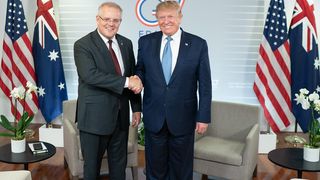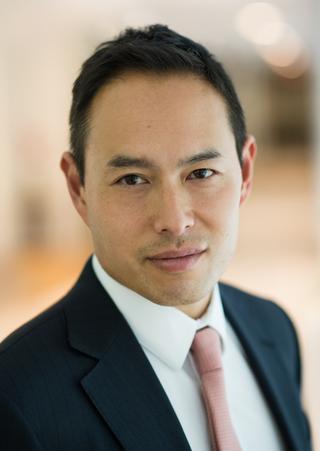Xi Jinping, Vladimir Putin and Kim Jong-un once thought they had Donald Trump figured out. They were wrong. Despite his apparent friendliness with these dictators, sanctions and other punishments the US President has imposed against their nations are far tougher than those imposed by his predecessors. His method is to disrupt, surprise and escalate, which are powerful tools to keep rivals unbalanced.
The problem is that this is also deeply unsettling for allies and friends. Which is why Scott Morrison’s upcoming state visit to Washington is important, occurring at a time when America’s relationship with China is being recast and reset. Beyond the pomp, spectacle and photo opportunities in the Oval Office, Morrison must return with a better understanding of, and influence over, the President’s game plan.
The closer to the top of the decision-making process we get, the greater the emphasis must be on working with the idiosyncrasies of a leader.
The key is to play the man. It is true that there are enduring historical, structural and domestic factors shaping the way all administrations behave on the global stage and any decent prime minister ought to have basic appreciation of these. But the closer to the top of the decision-making process we get, the greater the emphasis must be on working with the idiosyncrasies of a leader. Unlike with John Bolton, the national security adviser who was fired this week over policy and personality differences, Trump cannot rid other countries of their leaders. But he can choose who to take into his confidence.
The outstanding paradigm in this regard is Japanese Prime Minister Shinzo Abe, whom Morrison calls the "senior figure" among Asian leaders. When Trump began his tenure, his advisers would have told him that Abe had emerged as the leading democratic statesman in the region. Probably making a more favourable impression on the then new President was the fact that Abe rejected unhelpful caricatures of Trump and immediately courted the latter when much of the world – including allies – was still in shock and disbelief. Trump’s style is unsettling, but better to work with a disrupter than sit passively by.
Since Trump's inauguration in January 2017, the two leaders have had at least a dozen personal meetings and reportedly spoken to each other about 40 times. This is not false flattery but the pursuit of one’s national interest in action. For example, having gained Trump’s confidence and ear, Tokyo was enormously influential in the American-led "maximum pressure" campaign against Pyongyang and the shape of the unprecedented United Nations Security Council sanctions against North Korea. Tokyo also worked hard behind the scenes to ensure Trump did not agree to a "bad deal" that would sell out Japan in the pursuit of a breakthrough with Kim Jong-un. At the least, it seems Japan had a better insight into American thinking on North Korea than any other nation. When one is dealing with a president prone to sudden decision-making, there is a premium on minimising unpleasant surprises.
Having already shared one meal in Osaka, there is already a good rapport between the Australian and American leaders.
While not a maverick like the President, Morrison has the advantage that Trump sees him as a political winner – one who defied elite wisdom to prevail in a seemingly unwinnable election.
While not a maverick like the President, Morrison has the advantage that Trump sees him as a political winner – one who defied elite wisdom to prevail in a seemingly unwinnable election. More than that, Australia has credibility in the Trumpian economic worldview. In addition to the US enjoying a current account surplus, Australia cannot be accused of having gamed the international trading system. We did not acquire habits arising out of the so-called east Asian export-oriented model of protecting one’s domestic market, intervening to minimise currency appreciation, and manufacturing cheap and reliable goods for consumers in America and elsewhere.
Our economy is one of the most genuinely open in the world.
China has evolved and extended that so-called east Asian model in unprecedented and perverse ways. The President will know that Morrison is one of the few leaders to publicly acknowledge the US has legitimate grievances against both China and a global economic regime unable and unwilling to deal with the problem. But having put the Communist Party on the backfoot with his trade war, how Trump will use that leverage remains unknown.
Getting a better insight into where Trump might land will help us prepare. More proactively, we can suggest what a favourable institutional and policy outcome might look like. Is it reform of the World Trade Organisation or a parallel regime, say on intellectual property? What aspects of the Belt and Road Initiative do we collectively counter, and why? Economic tensions will rumble on for some time but we can suggest the preferred terrain and purpose – and directly explain to the President the types of actions that would cause disproportionate harm to the Australian economy.
Finally, some might argue putting so much emphasis on working the relationship with Trump is evidence of an alliance cheer squad losing self-respect. That would be an immature standpoint. Almost every global challenge affecting Australia is impossible without American leadership, including the Korean peninsula, South China Sea, stability in the Persian Gulf, and patching up global rules on investment and trade.
Nurturing the alliance – as will occur next week – will elevate rather than diminish our standing and voice in the region.






